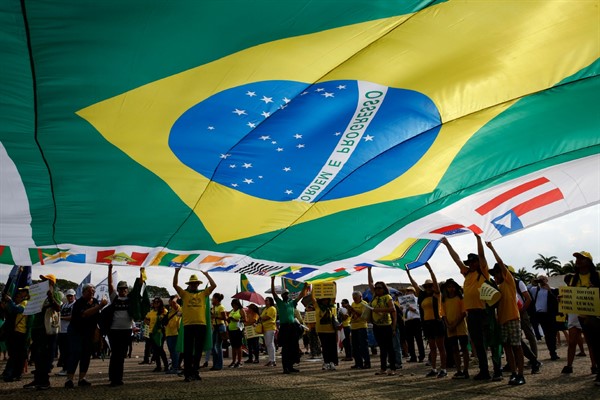Until recently, it was one of the brightest, most promising trends in Latin America, and one of the strongest arguments for optimism about its future. But tragically, the fight against corruption, which had made determined strides in its drive to uproot graft, influence peddling and venal misuse of resources, has not only stalled—it has shifted into reverse. The backsliding is now converging with the scourge of the coronavirus, adding to the many challenges that Latin Americans face, and raising the barriers to recovery after the pandemic ends.
Latin America is not alone in hitting a wall in its attempts to confront and dismantle corruption. According to the latest report from Transparency International, two-thirds of the world’s countries, including prominent developed nations such as the United States, “are stagnating or showing signs of backsliding in their anti-corruption efforts.”
That battle had been making some of its most impressive gains in Latin America, with powerful reverberations in other parts of world. Brazil’s famed Lava Jato, or Car Wash, investigation uncovered billions of dollars in bribes and other kickbacks across more than a dozen other Latin American countries. Its revelations toppled governments, put scores of prominent business and political figures in prison, and led to indictments of hundreds of other dirty officials. Elsewhere, in Central America, Guatemalans had inspired their neighbors and much of the world when they forced a corrupt president, Otto Perez Molina, to resign in 2015 as investigators produced mounting evidence of corruption, which ultimately led to his imprisonment.

